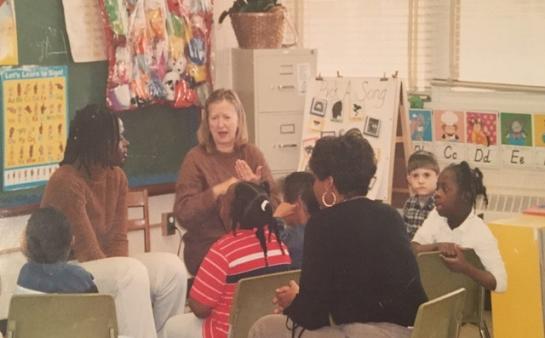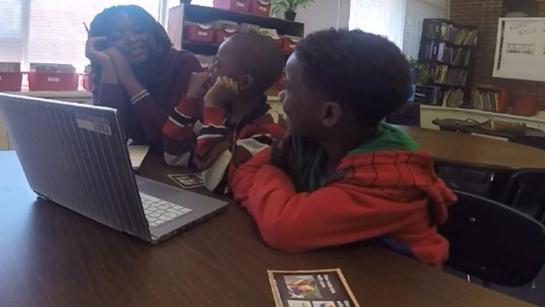Dr. Robai Werunga

Dr Robai Werunga, DISES Member at Large for Membership Support, is a native of Kenya and lived there for several years before coming to the United States. In Kenya, she earned her first teaching degree in Religious Studies and Swahili at the Egerton University, with which she taught high school for a couple of years. Having gained experience in Special Education in the U.S, Robai recognizes that looking back, so many of her classmates who struggled and were held back in grade school might have had disabilities that went undiagnosed.
Sharing her experiences, Dr. Werunga said not being able to use the degree she earned in Kenya here in the U.S, she found a job working with adults with developmental disabilities, and that is where her journey in Special Education began. “It was quite eye-opening because in Kenya I had very limited knowledge regarding special education supports for an array of disabilities. For example, I had never learned about special education for children with behavioral and learning disabilities. Back in Kenya, “special education” meant special schools to accommodate children who were blind, deaf or those who had physical disabilities”. In recent years there has been emerging awareness for other disabilities, particularly Autism, partly because of the global autism awareness. However, there remains a great need for education, funding and supports for students with Autism and other developmental disabilities. High incident disabilities such as Specific Learning Disabilities (SLD) and Emotional & Behavior Disorders (EBD), typically go undiagnosed. Due to this, there are no established structures to provide systematic supports for students who exhibit characteristics such disabilities within regular public schools.
About a decade ago, the Kenyan government put forth a national Special Needs Education policy framework that provides comprehensive strategies and policies to improve services for people with disabilities. Creating advocacy and awareness, revamping the curriculum, incorporating technology, providing teacher training, and improving data collection are some of the recommendations included in the policy framework to enhance special education services and facilitate inclusive practices. Even with this policy in place, providing equitable inclusive education for students with disabilities still largely remains a challenge.
Intrigued by her experiences and recognizing the status of special education in Kenya, Robai decided to pursue a teaching license and master’s degree in special education at Fayetteville State University in North Carolina and continued with a PhD in Special Education at the University of North Carolina, Charlotte. Robai says the best part of her job is working with preservice teachers to support students from culturally and linguistically diverse backgrounds and, working with immigrant families to identify their needs and to support them with the IEP process. Dr. Werunga is currently an assistant professor of special education at University of Massachusetts, Lowell.
Dr. Werunga’ s goal is to promote awareness of high incidence disabilities in her native country of Kenya, by advocating for assessment, diagnosis and interventions that promote positive school outcomes for these students. Currently, Dr. Werunga is focused on providing supports for immigrant Kenyan families who have children with disabilities to become effective advocates for their children in the US. Her work includes webinars that inform these parents about the special education process and their rights and responsibilities. Through this work and deep commitment, she continues to aspire to making her vision a reality for the children and families of Kenya!
